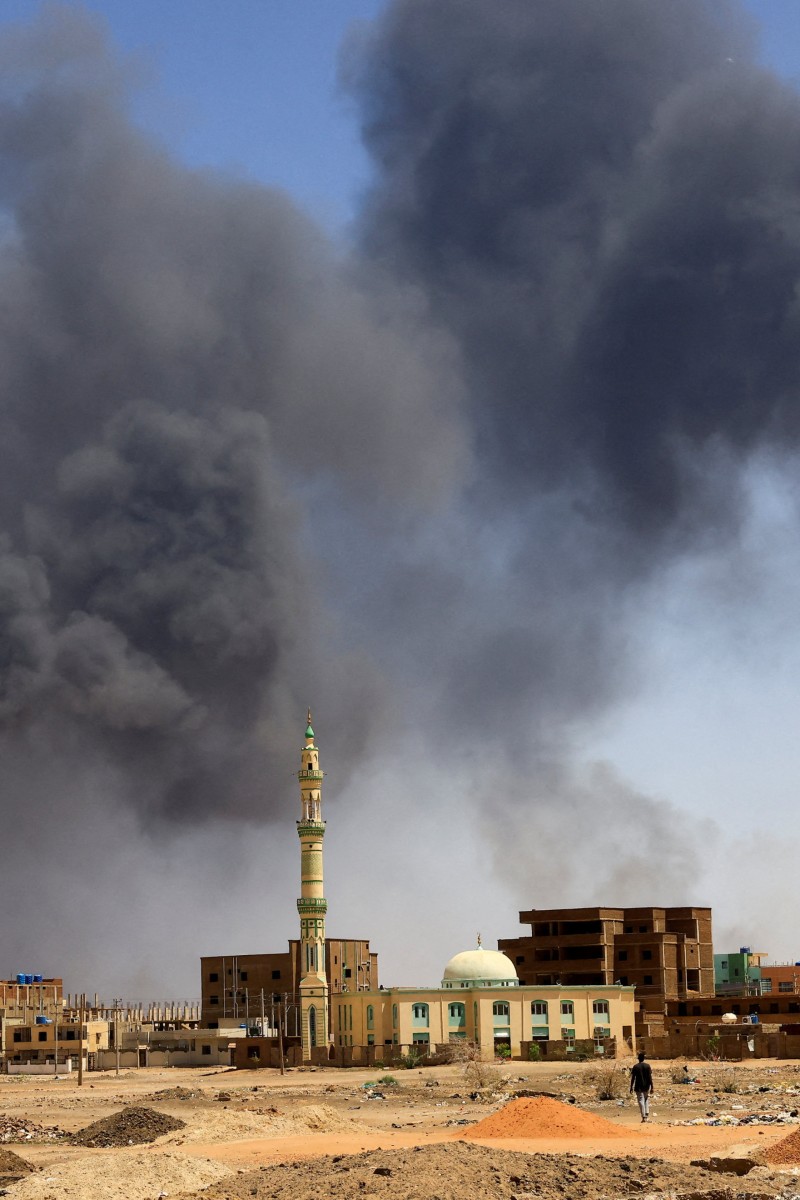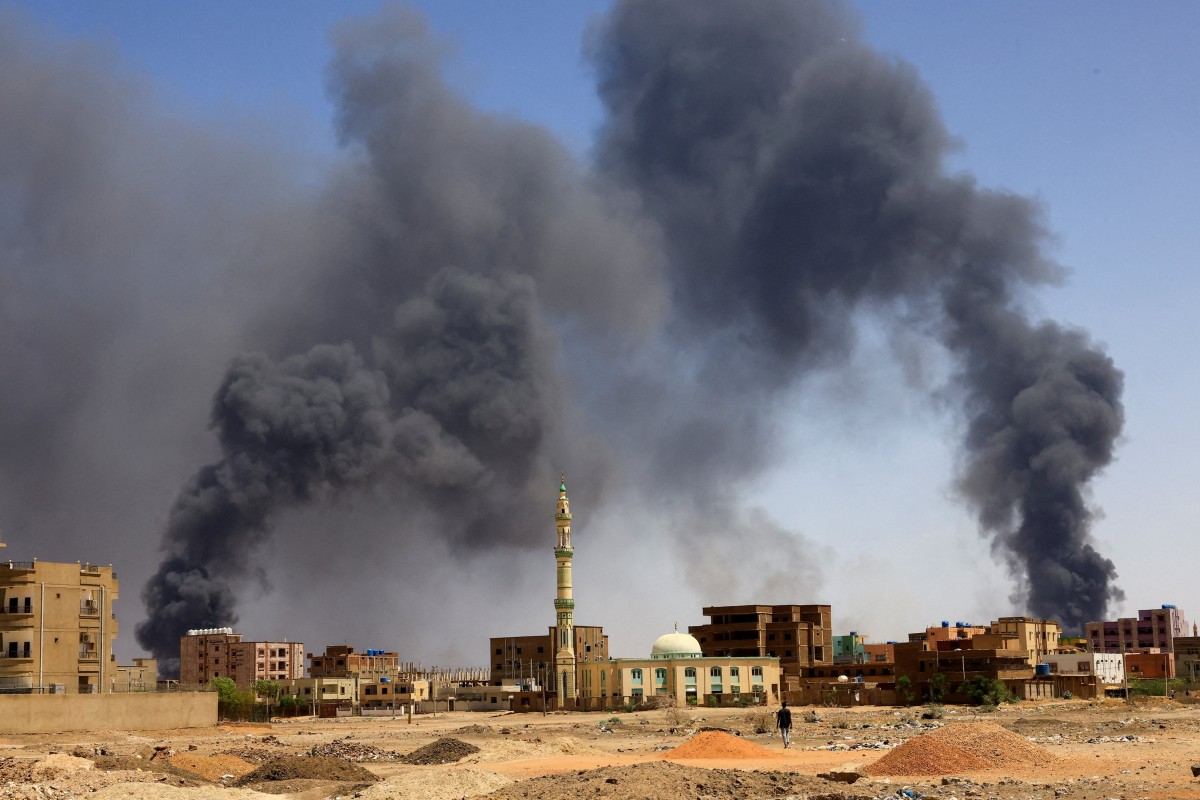
The Lens: UN pressures Sudan’s warring generals after aid looted
- UN fears humanitarian catastrophe as aid chief seeks in-person meetings with Sudan’s warring parties
- Each week, we choose a picture from the news and provide questions to help you dive deeper into the topic
 A man walks while smoke rises above buildings during clashes between the paramilitary Rapid Support Forces and the army in Khartoum North, Sudan. Photo: Reuters
A man walks while smoke rises above buildings during clashes between the paramilitary Rapid Support Forces and the army in Khartoum North, Sudan. Photo: ReutersHave some thoughts on this issue? Send us your response (no more than 300 words) by filling out this form or emailing [email protected] by May 10 at 11.59pm. We’ll publish the best response next week.
Observe and read
-
Do you recognise the place in the picture?
-
Based on the news snippet, why is the UN hoping for talks?
News snippet
Reuters
The United Nations pressed Sudan’s warring factions to guarantee safe passage of humanitarian aid after six trucks were looted and air strikes in the capital undermined a truce.
UN aid chief Martin Griffiths said he hoped to have face-to-face meetings with Sudan’s warring parties within two to three days to secure their guarantees that aid convoys would be able to deliver relief supplies. The meeting could take place in Khartoum, the capital, or another location.
“It’s important to me that we meet physically, face-to-face to discuss this, because we need it to be a public, accountable moment,” he said on Wednesday.
The UN has warned that fighting between the army and the paramilitary Rapid Support Forces (RSF), which erupted on April 15, risks causing a humanitarian catastrophe that could spill into other countries. Sudan said on Tuesday that 550 people had died and another 4,926 had been wounded so far in the conflict.
Heavy bombardments also rang out in the adjoining cities of Omdurman and Bahri. Both sides had agreed to a seven-day ceasefire, which has been violated.
In Khartoum, millions still tried to shelter from open warfare between an army using air strikes and heavy artillery and RSF forces embedded in residential neighbourhoods.
With international mediators pressing for peace talks, Sudan’s army said it would send an envoy for talks with South Sudan, Kenyan and Djibouti leaders. According to the UN, about 100,000 people have fled Sudan with little food or water to neighbouring countries.
Research and discuss
-
What is happening in Sudan? Who is fighting against whom?
-
Why is humanitarian aid so important?
Thoughts from last week
Valerie Chiu, St Mary’s Canossian College
With approximately 1.4 billion people, China is one of the most populated countries in the world. The sheer size of its population, plus the fact that it borders 14 countries, many of which rely on tourism, means Chinese tourists are crucial to the global tourism industry.
Since the number of people travelling remains far below pre-Covid levels, a few things must happen to help the tourism industry recover.
First, we must increase the number of flights available, as there are far fewer flights now than before 2020. The decrease in the number of flights meant ticket prices skyrocketed, putting them out of reach for many people.
Increasing the number of flights would allow ticket prices to drop, enticing more people to travel abroad as it becomes more affordable.
Popular travel destinations, such as South Korea or Japan, could invest in tourist spots that showcase the area’s character and history. For instance, Hong Kong recently opened the M+ museum and Palace Museum, which have exhibits that can only be found in Hong Kong.
Shopping vouchers can also boost tourism; they offer an incentive for travellers and ensure visitors contribute to the local economy.
Now that the pandemic is under control, we must focus on reviving tourism, which is crucial in improving the global economy.
The Lens: Fewer Chinese tourists travelling than before Covid-19 pandemic